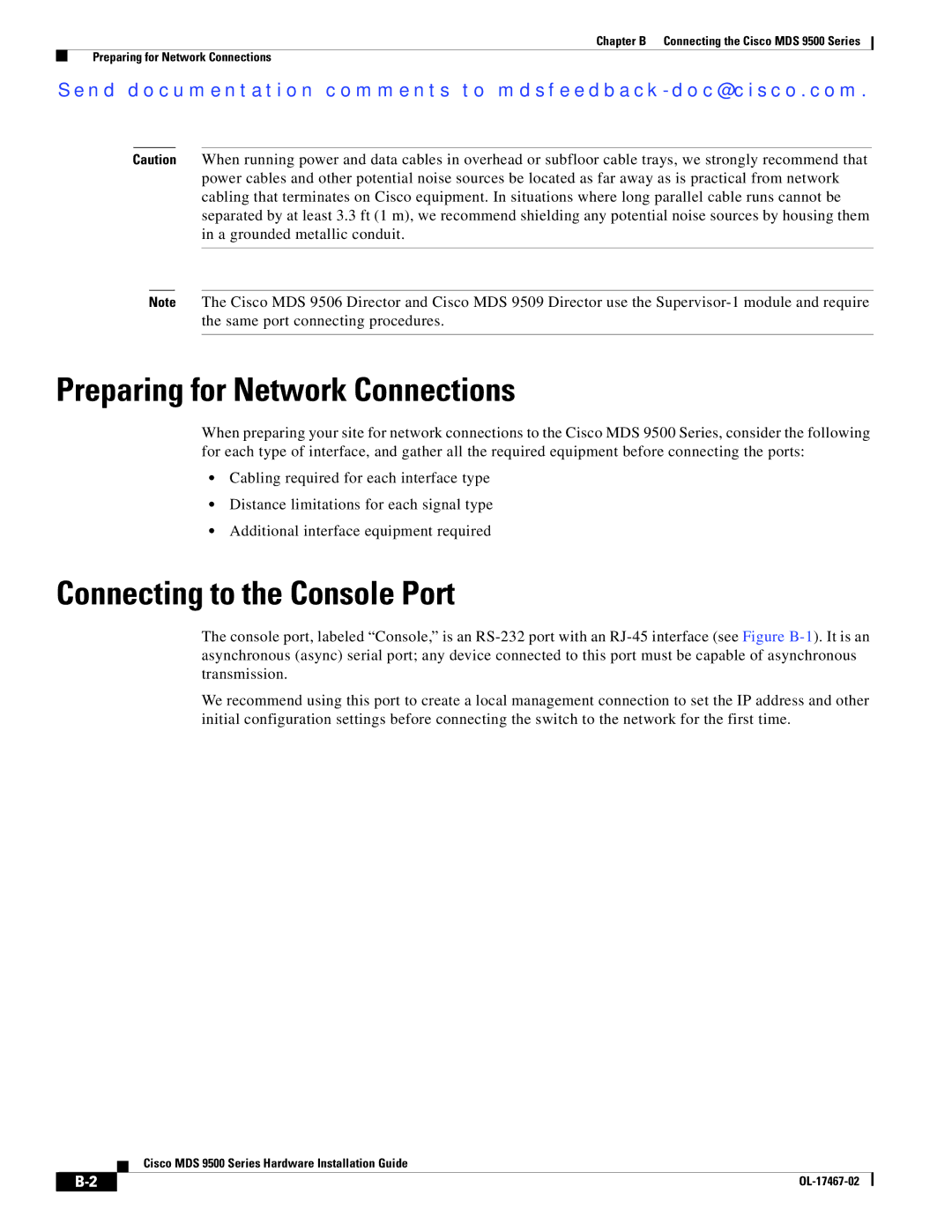
Chapter B Connecting the Cisco MDS 9500 Series
Preparing for Network Connections
Se n d d o c u m e n t a t i o n c o m m e n t s t o m d s f e e d b a ck - d o c @ c i s c o . c o m .
Caution When running power and data cables in overhead or subfloor cable trays, we strongly recommend that power cables and other potential noise sources be located as far away as is practical from network cabling that terminates on Cisco equipment. In situations where long parallel cable runs cannot be separated by at least 3.3 ft (1 m), we recommend shielding any potential noise sources by housing them in a grounded metallic conduit.
Note The Cisco MDS 9506 Director and Cisco MDS 9509 Director use the
Preparing for Network Connections
When preparing your site for network connections to the Cisco MDS 9500 Series, consider the following for each type of interface, and gather all the required equipment before connecting the ports:
•Cabling required for each interface type
•Distance limitations for each signal type
•Additional interface equipment required
Connecting to the Console Port
The console port, labeled “Console,” is an
We recommend using this port to create a local management connection to set the IP address and other initial configuration settings before connecting the switch to the network for the first time.
Cisco MDS 9500 Series Hardware Installation Guide
|
| ||
|
|
